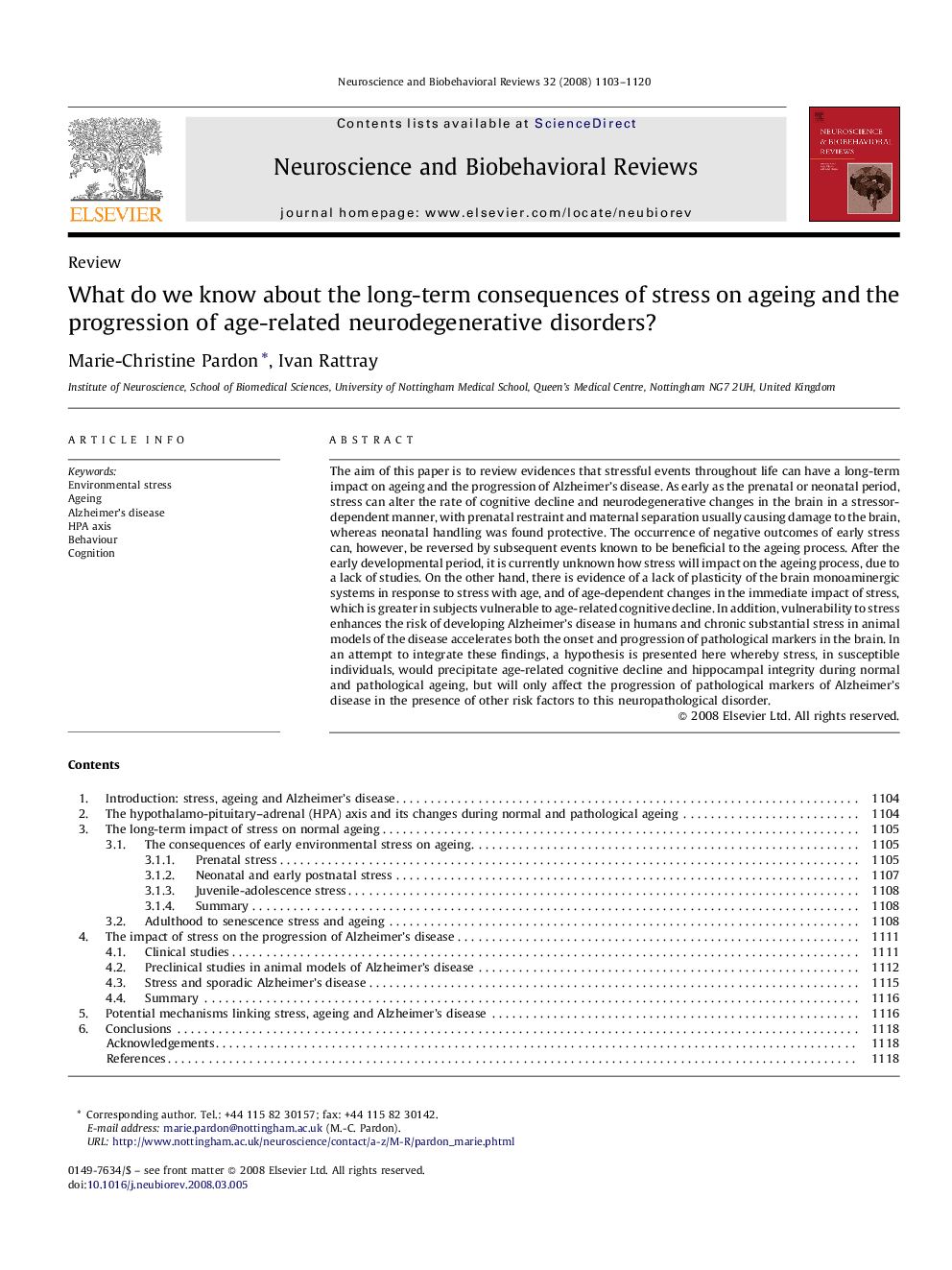| Article ID | Journal | Published Year | Pages | File Type |
|---|---|---|---|---|
| 937881 | Neuroscience & Biobehavioral Reviews | 2008 | 18 Pages |
The aim of this paper is to review evidences that stressful events throughout life can have a long-term impact on ageing and the progression of Alzheimer's disease. As early as the prenatal or neonatal period, stress can alter the rate of cognitive decline and neurodegenerative changes in the brain in a stressor-dependent manner, with prenatal restraint and maternal separation usually causing damage to the brain, whereas neonatal handling was found protective. The occurrence of negative outcomes of early stress can, however, be reversed by subsequent events known to be beneficial to the ageing process. After the early developmental period, it is currently unknown how stress will impact on the ageing process, due to a lack of studies. On the other hand, there is evidence of a lack of plasticity of the brain monoaminergic systems in response to stress with age, and of age-dependent changes in the immediate impact of stress, which is greater in subjects vulnerable to age-related cognitive decline. In addition, vulnerability to stress enhances the risk of developing Alzheimer's disease in humans and chronic substantial stress in animal models of the disease accelerates both the onset and progression of pathological markers in the brain. In an attempt to integrate these findings, a hypothesis is presented here whereby stress, in susceptible individuals, would precipitate age-related cognitive decline and hippocampal integrity during normal and pathological ageing, but will only affect the progression of pathological markers of Alzheimer's disease in the presence of other risk factors to this neuropathological disorder.
